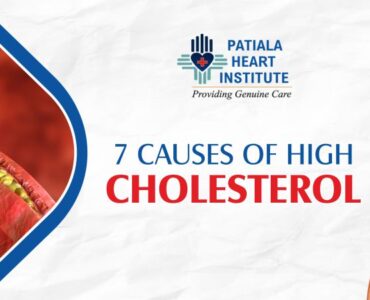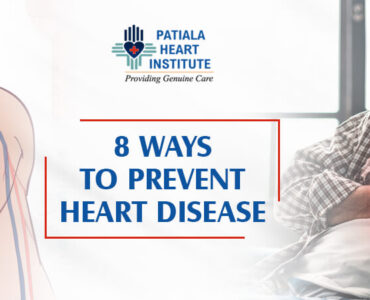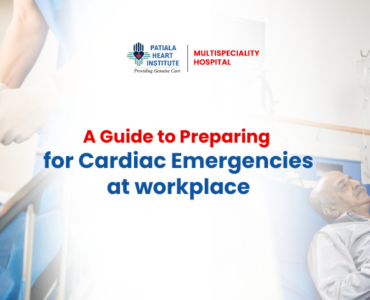We all adore the winter season as we enjoy sipping hot chocolate and eating snacks with our friends and families. Winters are full of celebrations and fun, but it also invites vulnerability for our hearts.
Studies have shown that human casualties due to heart disease and stroke increase during the winter. Also, heart attacks become more fatal during winters as compared to summers.
According to Padma Shri Awardee, Dr. KK Aggarwal, President of Heart Care Foundation of India (HCFI), said, “All heart patients should have their cardiac and mental stress levels check up done in winter. A heart attack can come with irregular meals, late nights, missing a regular dose of medicines, and indulgence in smoking and drinking. Acute stress-related events are common during winters, especially close to the full moon in the early morning hours. The circadian variation in event frequency suggests that cardiac events may be triggered by external activities, particularly those activating the sympathetic nervous system.”
However, luckily these conditions can become avoidable with a healthy lifestyle which helps you beat angina, heart attack, and other heart-related problems.
Cold Weather Can be a Major Risk Factor
- The cold weather causes blood vessels to contract, raising your blood pressure and making you severely vulnerable to heart attack and stroke.
- In winter, the coronary arteries constrict. Therefore angina or chest pain due to coronary arteries constriction in the cold can worsen.
- In winter, generally, your heart works a little extra to maintain a healthy body temperature. Cold winds can make it challenging because they cause your body to lose heat more quickly. Also, if your body temperature falls below 95 degrees, Hypothermia can cause damage to your heart.
Ways To Keep Your Heart Healthy During Winters
Keeping yourself healthy during winter helps you avoid getting sick and gives you a healthier heart. Therefore, here we are with some of the best ways to help you keep your heart healthy during winter.
Go For Healthy Winter Food
We generally have hot and hearty meals in winter, which helps keep us warm. Moreover, being warm help keep our immune system strong, and, as a result, our body can fight against winter illness. As a priority, you must have all the seasonal vegetables and fruits to keep yourself healthy:
- Beetroot
- Cabbage
- Capsicum
- Carrots
- Cauliflower
- Kale
- Pumpkin
- Sweet potato
- Turnip
- Broccoli
Apart from these, soup and stew are excellent meals for winter.
Have a Balanced Sleep Pattern
Getting a good quality balanced sleep is really important for every individual’s mental and physical health. However, poor sleep contributes to various health conditions, including heart disease, diabetes, stroke, and high blood pressure.
Every adult needs 7 to 9 hours of quality sleep every night. For that, a consistent evening routine can help you sleep better. Here are a few methods that can help you achieve a healthy sleep pattern:
- Ensure regular sleeping hours
- Stay away from blue screens at least an hour before you sleep
- Relax and calm yourself before going to bed
Indulge in Regular Physical Activity
Exercising is an important physical activity that helps keep your body warm and heart healthy. But sticking to your exercise routine is really tough during winter. Still, it is recommended to everyone they should do at least 150 minutes of exercise every week to have a happy heart. Exercising is important for every season and not just winter. Try these easy hacks & stay fit:
- Go for at least 15-20 minutes of walking every day.
- Be consistent with your exercise.
- If you do not like being outdoors, use online courses to your advantage.
Protect Yourself From Flu or Infections
Generally, the flu and infections spread mostly during winter and can also lead to serious health issues; therefore, you must ensure that you take good care of yourself to avoid such health issues. Moreover, people with existing heart conditions are at a higher risk, so we recommend you take extra care and precautions.
Always Listen to the Heart Warnings and Symptoms
If you have unbearable or severe chest pain in winter and you also find it radiating to your neck, arm, or shoulders, these can be the symptoms of a heart attack. Aside from these symptoms, men and women can experience different symptoms. For example, men may experience dizziness and nausea, while women may experience fatigue and dizziness.
In order to ensure your health, we recommend you get a heart checkup every winter season. To keep your body and heart healthy, you must:
- Follow a healthy diet
- Exercise regularly
- Manage your stress and anxiety
Final Words
The winter season can give your body and heart some hard times. Therefore you must take good care of yourself and if you feel any of the discussed symptoms, make sure to seek immediate medical help. Visit Patiala Heart Institute, a leading hospital in Patiala, for advice from qualified cardiologists to keep your heart healthy.
What are the three common causes of chest pain?
The three common causes of chest pain are:
- Heart Attack (A heart attack results from blocked blood flow or a blood clot in the heart muscle)
- Angina (severe pain in the chest caused by the poor flow of blood)
- Inflammation of the sac around the heart
Can a chest cold affect your heart?
A virus known as Adenovirus generally causes the common cold that can cause heart problems and be fatal at times. Also, if it reaches the heart, it can trigger an irregular heartbeat called arrhythmia or sudden cardiac death in extreme cases.
Are heart attacks more common in winter?
The drop in temperature can impact your health and, specifically, your heart, as the low temperature can constrict your blood vessels and result in higher blood pressure. All of this puts you at risk for heart attacks and strokes.







